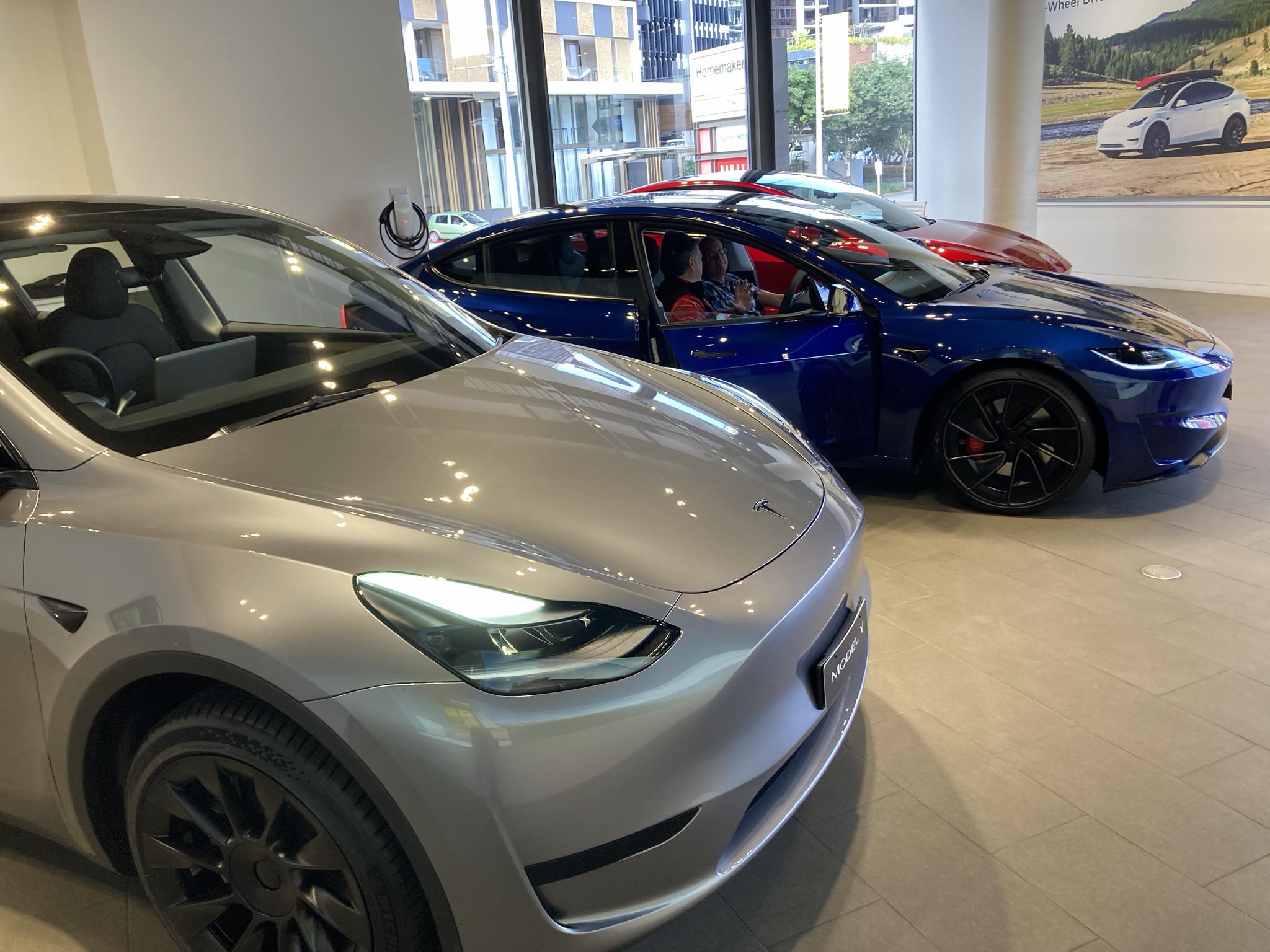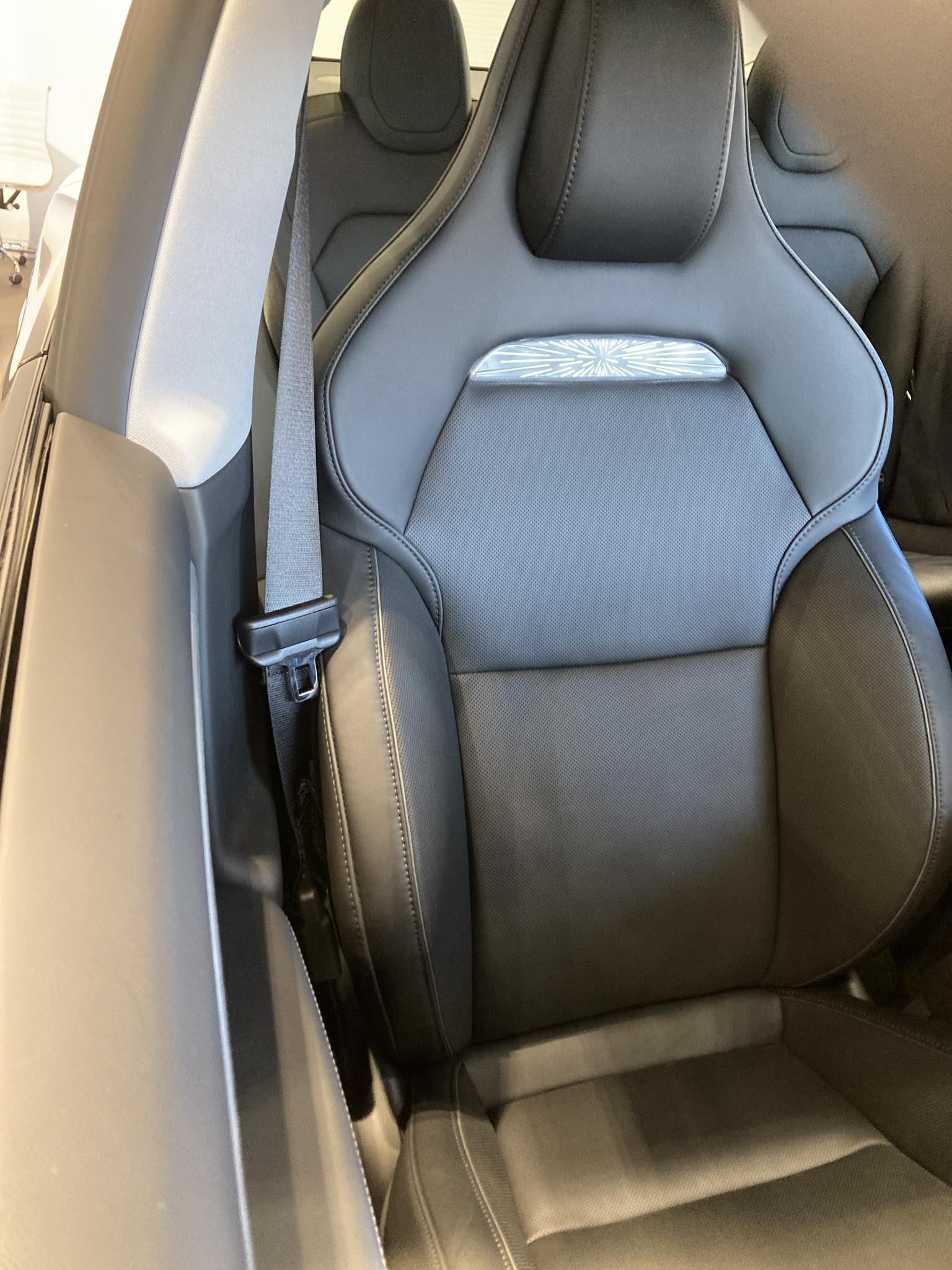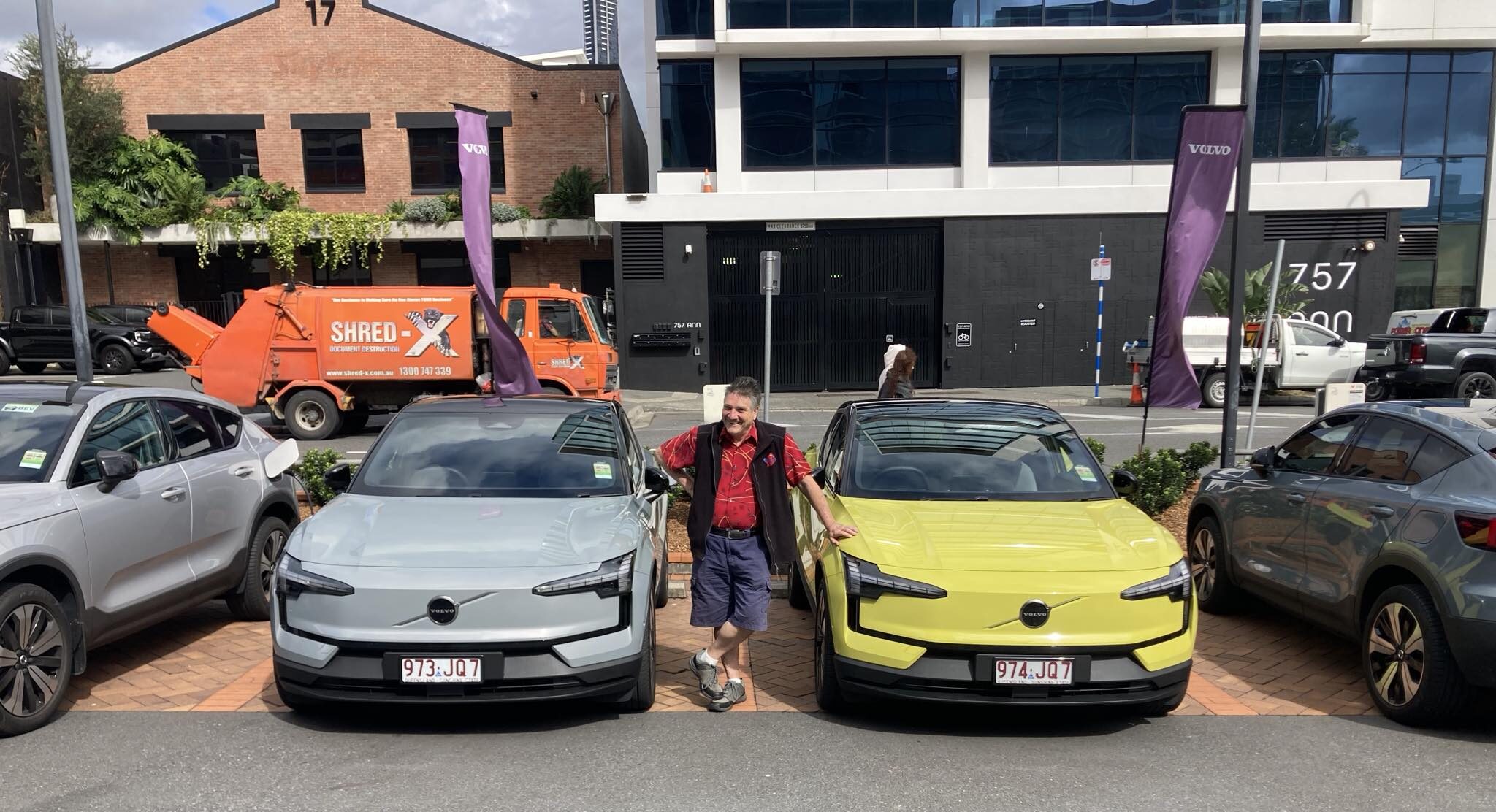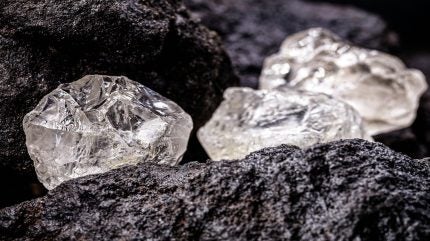Sign up for daily news updates from CleanTechnica on email. Or follow us on Google News!
The mainstream media would have us believe that electric cars are facing stagnating demand. No doubt they will be encouraged by the drop in Tesla sales March to April. In April 2024, Tesla Australia delivered 2077 vehicles (1166 Model Y and 911 Model 3), a drop compared to over 6000 in March. But when we compare April (first month of a quarter) to Australia’s Tesla deliveries in January 2024 (first month of a quarter), we can actually see an improvement. January 2024 saw only 1107 Teslas delivered. It’s the month-on-month figures that are frightening. In March, 6017 Tesla’s hit the roads. Could it be that we will see the same uptick as the quarter unfolds? Once again, we need to take a longer-term view.

Here is a fairly even-handed interview from Australia’s ABC about the future of the EV market vis a vis hybrids.
The Australia new car market continues to strengthen. Despite the ‘cost of living crisis’, over 18% more cars were sold in April 2024 than in April 2023. Over 92,000 new cars were sold according to car expert. However, the vast majority of these needed fossil fuels. Not only that but: hybrid (HEV) and plug-in hybrid (PHEV) demand exceeded battery electric (BEVs). With over 17% of household income being spent on transport (petrol is over AU$2 a litre yet again), you would think that more people would be turning to EVs.
“Compared to April 2023, hybrid sales were up 194.5 per cent to 16,466 sales, while plug-in hybrid (PHEV) sales were up 138.5 per cent to 1,300 sales. In contrast, EV sales were down 5.1 per cent on last April, with 6,194 sales — strongly impacted by a year over year decline of 43.5 per cent for EV leader Tesla. That resulted in market share of 6.4 per cent for EVs, down from 7.9 per cent in April 2023.” It looks like Toyota cleared a lot of backorders in April — let’s see if that continues throughout the rest of the year. If we include PHEVs, plug-in share almost reached 8%, the same as the average for 2023.

Taking the midterm view, year-to-date numbers show BEV deliveries up 32% (to 31,662), but HEVs are still winning the race with over 5,000 sales and an increase of 138%. PHEV sales increased 135% for a total of 4,726 deliveries. Top selling BEVs in Australia in April 2024 were:
- Tesla Model Y (1,166 sold in April) — year to date 7,956
- Tesla Model 3 (911) — year to date 6,865
- BYD Seal (811) — year to date 2,384
- MG4 (476) — year to date 1,811
- BYD Atto 3 (418) — year to date 2,638
- BMW i4 (206) — year to date 663
- BYD Dolphin (181) — year to date 869
- Volvo XC40 Recharge (140) — year to date 584
- Hyundai Kona Electric (127) — year to date 629
- Kia EV6 (132) — year to date 721
Comparing this to the leaderboard from March, there is very little change in the participants. On the petrol podium, the Toyota RAV4 took gold (with 5,857 deliveries), while the Ford Ranger was in second place (5,569 deliveries), and in third it’s Toyota again with the Hilux (4,693 deliveries). Australia is still heavily addicted to large utes powered by diesel and petrol.
Outside the top ten we find the Mercedes-Benz EQE SUV (113 deliveries), Polestar 2 (100), GWM Ora (80), Toyota BZ4X (74 — that’s 385 so far for the year!), Kia EV9 (61), Mustang Mach-e (42), Cupra Born (41), and Hyundai IONIQ 6 (37). In addition, 1,707 MG ZS were sold, but it is not known how many of these were electric. It is likely to be in the hundreds. Yes, I am barracking for the Toyota BZ4X — we need more electric Toyotas on the road. Great Wall has once again cut the price of the ORA. You can now buy two ORAs for the price of one Model 3, and it is cheaper than a Corolla!
Speaking of price cutting, Peugeot has just announced a AU$25,000 discount on its flagship e-2008. That’s 40% off. Speculation is that this is to clear stock before a new model arrives. The teched out electric version is cheaper than the petrol model — a brief glimpse of the future when electric cars become cheaper than petrol cars and have greater levels of technology.
Some good news from Australia’s largest state: Western Australia has increased the availability of rebates for BEVs (hybrids are excluded). The generous rebate of AU$3,500 applies to BEVs costing less than AU$70,000. Thanks to recent price reductions, there are plenty of such cars available. Sales of electric vehicles have increased fourfold since the rebate was introduced in June 2022. Over AU$20 million has been paid to rebate applicants so far.
According to Wikipedia, Western Australia is Australia’s largest state, with a total land area of 2,527,013 square kilometres (975,685 sq mi). That’s tree times the size of Texas. It comprises about a third of the country but has a sparse population of around 3 million.
Last month, we told of the visit to the local Toyota dealer and our test drive of their electric car. This month, there is more good news: the Model 3 Highland Performance is now available. We popped into the Brisbane showroom today to check it out. We were able to sit in it and chat to the salespeople, but they have no demonstrators available for test drives just yet.
Just up the road at the Volvo dealership was the opposite story — they have several demonstrators of the EX30 available and waiting. We were given copious amounts of information about the car by the knowledgeable assistant manager. He was most enthusiastic, but apologetic when we said we wanted a red one — the EX30 does not come in red. Mindful of the successful sales story coming out of Europe, I asked how sales were going. He told me that the Brisbane dealership has 200 on order and nationally the figures are in excess of 2,000. Hopefully the new Volvo will join its siblings on the top 10 chart by the end of the year.

My news feed seems to be full of contradictory headlines — “Hybrid lifeline for EV-challenged automakers” … “French carmakers target fourfold jump in EV sales by 2027” … “Here’s why so many Republicans won’t buy EVs” … “Volvo Cars April sales rise on strong demand.” And that’s just today! Perhaps the auto industry is in self-inflicted turmoil. Here in Australia, we are totally at the mercy of car importers. However, as more and more of them turn to electric cars, it promises to be an interesting electric future. More models are promised soon.
Have a tip for CleanTechnica? Want to advertise? Want to suggest a guest for our CleanTech Talk podcast? Contact us here.
Latest CleanTechnica.TV Video
CleanTechnica uses affiliate links. See our policy here.





